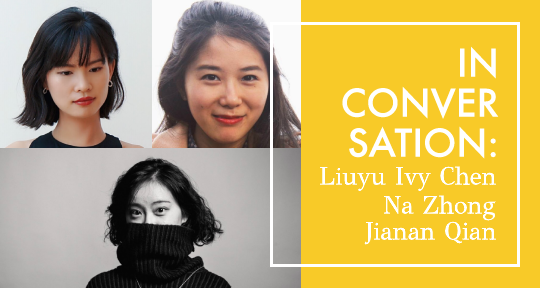Recently, I came across an interesting comment, that despite the fact that more POC writers are being published, the English publishing world will not actually become more diverse, as the editors and gatekeepers who select them for publication continue to be predominantly white.
Asian writers have perhaps heard similar feedback from their editors: “Your story is not Asian enough,” or: “Why don’t you write more about your family’s immigration stories?” Sometimes the endeavors of white editors to market POC writers may in fact reinforce stereotypes. The same could be said for translations: if the translators of foreign literature continue to be exclusively white, native English speakers, then English readers would likely continue to receive material that reinforces their expectations, rather than that which may broaden their perspectives.
The word translation is rooted in the Latin translātus (to carry over); it’s always about appropriation and transition, but that doesn’t mean we should stop thinking about how we can strive for a more inclusive and dynamic future in publishing—trusting and bringing in more POC translators to deliver English translations may be one solution.
Jianan Qian, Na Zhong, and Liuyu Ivy Chen are all millennial Chinese female writers who have received higher education in both China and the US. They write bilingually and translate between their two languages, having already introduced several talented contemporary Chinese experimental writers and young female authors to the English world. Their work has been tremendous thus far, and one expects their futures to be even greater.
—Jiaoyang Li, July 2020
Jiaoyang Li (JL): All of you were writers before becoming translators. What is the relationship between writing and translation for you? Is translation a kind of creative writing?
Jianan Qian (JQ): For me, the purpose of literary translation is twofold. First, the work pushes me to do intensive reading. Usually I choose my own translation projects, so I can take the time to appreciate the author’s writing on a granular level. I also consider translation to be a writing practice—it might be a sort of creative writing, but for me, it is more like an opportunity to see how beauty comes into being differently in the two languages. I work with a wonderful co-translator, Alyssa Asquith, and I always learn a lot about linguistic, aesthetic, and cultural differences from our exchanges.
Na Zhong (NZ): A great translator should think like a writer, and to be a great writer you have to be a great reader. Translation provides the reliable gymnastic exercise for me to maintain, stretch, and become aware of my linguistic muscles. A rich text demands that I pay maximum attention to its diction, syntax, voice, and many other elements of writing. And a carefully chosen word can lead me into the depths of the story that would be impossible to reach if I were only engaging with it as a casual reader.
And yes, translating is a kind of creative writing, as imitation lies at the heart of all art forms. In the most literal sense, translating is rewriting the story in another language. It allows me, the translator, to adopt a voice and way of storytelling that I have never embodied before. The writer creates the characters imaginatively; the translator recreates the implied writer imaginatively.
Liuyu Ivy Chen (LC): For me, writing in my second language is an act of translation; living in a foreign country is a daily work of translation. Reading a new book, meeting strangers, falling in love, visiting an old place, or forgetting about the past are all translations to be enacted or retracted. This distance to cross and reduce is not so much between two languages, but between me and the world. There is so much I don’t understand, and translation is one way to cope with the unknown, to stay open-minded, and to bring seemingly unattainable beauty closer to touch. I read, write, and translate to touch the world. Translation is not only a kind of creative writing; it is a way of living. READ MORE…

